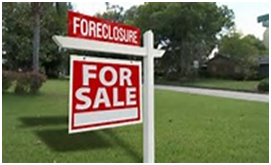Successful defences against home foreclosures were relatively very rare until recently. Nowadays homeowners are challenging foreclosures successfully in courts and this is due to the fact that there is evidence that proves that the real estate industry has been lousy with predatory and also fraudulent practices.
Raising a defense to Foreclosure
For a property owner to raise a defense to any foreclosure action, they must bring the issue before a state court judge. They have to file a lawsuit or a counterclaim indicating that the foreclosure action is illegal for some reason so as to request the state court to put the foreclosure on hold as they await the court’s decision on the case. In some states however, foreclosure cases take place out of court and therefore the property owner has no direct means to bring forth a legal challenge.
Potential foreclosure defenses
Foreclosure defenses can vary depending on the circumstances involved and also the state where the case is taking place. Some common defenses include:
- The mortgage terms are Unconscionable: when defending against foreclosure, most lawyers use the equity branch of law which focuses on those situations that are not provided for adequate relief by a legal statute. It’s not enough to just claim unfairness in the foreclosure, but one has to present a clear and specific justification for their position where there exists judicial precedence. Unconscionability is one such justification, whereby it is a principle that refers to the circumstances surrounding the mortgage, or its terms, being unfair, so unfair as to shock the judge’s conscience.
- Statutory violation: if the closing party does not follow laws and statutes outlining the foreclosure process, one can challenge the foreclosure claim. For example, if the foreclosing party fails to serve the property owner with a default notice at least thirty days before the foreclosure process is initiated, the court issues an order for the foreclosing party to start over the process.
- Being a Servicemember on Active Duty: the Servicemembers Civil Relief Act provides those on active military duty with special protection. If the property owner took out their mortgage before going on active duty, the foreclosure process must take place in court regardless of the state laws on foreclosure processes. In the event that the foreclosure process is initiated while one is on active duty, they can formally request in writing for the court to postpone the proceeding.
- Mistake: mortgage agreements are subject to rules and when the mortgage servicers make mistakes or errors in the mortgage agreements, the foreclosure may be challenged. Some of the major mistakes include payments credited to the wrong party, overstatement of the amount required to reinstate a loan or pay it off and imposition of excessive fees.
- Failure to prove ownership of the Mortgage: the foreclosure action can only be brought by the mortgage holder or someone acting on their behalf. Once the process is initiated, evidence of the original promissory note that addresses payments should be produced, failure to which the foreclosure proceeding must be postponed.
Sources:
www.nolo.com/legal-encyclopedia/defenses-foreclosure-29937-2.html
www.alllaw.com/articles/nolo/foreclosure/defending-commercial-mortgage.html

